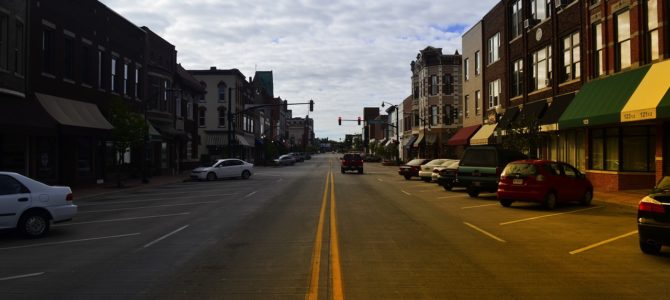
Republicans often like to talk about personal responsibility: our collective gumption or grit, our ability pull ourselves up by our own bootstraps, without taking “government handouts” or help from the welfare state. We like to espouse a vision of self-sufficiency and responsibility, of human beings who transcend whatever troubles they’re experiencing via sheer self-will.
But reality is never as simple and straightforward as individualistic legend. The Left asserts that poor, disenfranchised Americans without class privilege or wealth need help from the federal government. Without that assistance, the poor don’t have even the initial supports they need to overcome the struggles they face.
There is certainly some truth to that. But the factors generally ignored in our discussions of material wellbeing are social and cultural wellbeing—factors even harder to replace when they aren’t there, but even harder to build true flourishing without. If it “takes a village” to raise a child or help a family survive, what happens when the village falls apart? If children do best in two-parent households, what happens when divorce, single-parenting, and cohabitation make these households an ever-less-likely reality?
These were some of the thoughts shared and pondered at The Heritage Foundation’s unveiling of its 2017 Index of Culture and Opportunity on Thursday: the index considers the state of our social fabric—private institutions, local communities, families, et cetera—and asks how we can fix the parts of it which are in disrepair.
We Need Strong Social Capital
J.D. Vance, bestselling author of “Hillbilly Elegy,” opened the event by noting the importance of social and cultural capital to help young people thrive. Vance’s book is the nuanced and poignant account of a young man who grew up in a post-industrial town grappling with economic decay, familial breakdown, and the opioid epidemic. Vance largely points to the strong support and love of his grandparents as the factor that helped him survive the troubles of his childhood.
He reminded audience members that while personal responsibility is important, many of us are deeply (if not irrevocably) shaped by our childhoods. Vance realized early on that his mother’s troubled romantic relationships threatened to poison his own marital relationship, if he didn’t get counseling and begin to re-work the habits and reflexes that had built up during his childhood. Transcendence, he pointed out, is not always a matter of sheer will: gritting your teeth and purposing to change. Sometimes, it takes community—and all the accountability, support, and wisdom that comes with it.
But in a culture increasingly labelled a “fragmented republic,” full of communities who’ve lost their common threads of social capital, how do we grapple with this problem? How do we bring holistic empowerment—not just material support—to the individuals who need it most?
We Need Strong Local Institutions
Panelists at Heritage’s event spent a lot of time discussing single parenthood, divorce, and the collapse of the family as part of this communal decline—although there was also some discussion of economic and educational opportunity, and the 2017 Index explores communitarian and institutional dilemmas and solutions in greater depth.
I would have liked to hear more discussion of the local institutions and private associations—especially churches and charities—that might bind communities back together. The state of marriage in our country is tied, at least in part, to a set of norms and beliefs that have revolutionized our marital conceptions since the Sexual Revolution. The process of turning back to marriage, and reinvigorating a different set of norms, will take time.
But it will also take a passionate, locally focused set of religious and civic institutions that are committed to the wellbeing of their communities. This means they should also be willing and eager to step in where the state and the nuclear family currently cannot: as a support mechanism for single mothers or fathers and their offspring. A church that provides after-school programs, homework and resume-writing help, job and daycare opportunities for needy parents, breakfasts and dinners to their children—that’s a church that’s rebuilding social capital. It’s not just providing material wellbeing, it’s also rebuilding community, empowerment, and hope.
One of the reasons grassroots efforts such as this are so important is because our problems, as a nation, are complicated and particular: what works for a community in inner-city Chicago may not be 100 percent replicable in Appalachia, or in a rural Iowa town. Our problems are too often caricatured when we attempt to solve them entirely at the federal level—either with money, policies, or top-down federal programs.
Mobility Takes Good Soil, Not Just Grit
“Hillbilly Elegy” gave conservatives an opportunity to explain why they think our welfare state is insufficient—not because government money is bad per se, but because money cannot replace community. And upward mobility, as much as it may depend on grit and entrepreneurship and capital, depends as much on the soil you’re surrounded with as it does on your own determination (the Parable of the Sower in the book of Matthew is actually a good illustration of that).
Of course, fixing social capital is a larger, harder, more complex process than any other we could undertake. It will require humility, specificity, and a trust in local communities’ ability to prescribe and tackle their own problems. It will require a group of politicians and policymakers who act “more like umpires and refs, and less like star players,” as baseball fan and panelist Bill Mattox pointed out. Too often, Washingtonians make politics all about them—not about the communities they’re supposed to serve.
Finally, it will require a group of people committed to serving and loving their next-door neighbors, the people in their own town. That sounds simple, cliché perhaps. But change starts with us. And if we’re to have a strong communitarian republic once again, it will require more of us to “be the change” we want to see in our own neighborhoods, towns, and states.








